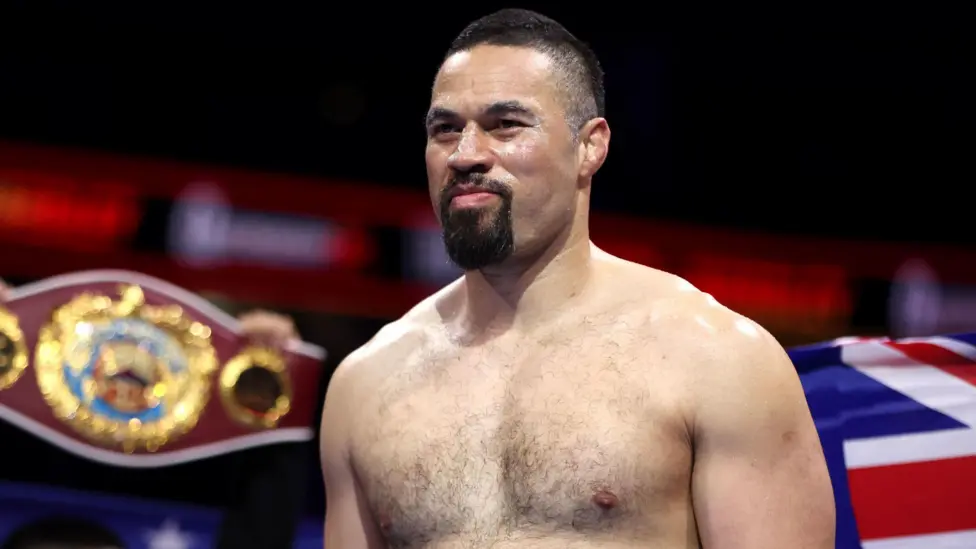Former WBO world heavyweight champion Joseph Parker is facing a potentially career-derailing ban after testing positive for cocaine on the eve of his October fight with Briton Fabio Wardley. The 33-year-old New Zealander, long regarded as one of boxing’s most respected professionals, is now at the centre of a disciplinary process that could leave him sidelined for months—or even years.
The adverse finding came from a Voluntary Anti-Doping Association (VADA) sample collected on 25 October, one day before Parker stepped into the ring at London’s O2 Arena. Despite the looming test result, Parker proceeded with the bout, which ended in a surprise defeat as Wardley outboxed him across the scheduled rounds. Only after the fight did news begin circulating behind the scenes that Parker had returned a positive result for a recreational drug, rather than a performance-enhancing substance.
Sources confirmed to BBC Sport that the detected substance was cocaine, placing Parker in a category of offences that governing bodies often treat differently from more severe doping violations involving steroids or other PEDs. Cocaine cases are typically viewed through the lens of out-of-competition drug misuse, which can lead to shorter suspensions under updated anti-doping frameworks.
Parker’s promoter, Queensberry Promotions, issued a brief statement acknowledging the finding but declined further comment.
“Joseph Parker returned an adverse finding in relation to his bout with Fabio Wardley. While the matter is investigated further, no additional comment will be made,” the statement read.
The disciplinary process itself may prove lengthy. Although the test was administered by VADA, any ban would ultimately fall under the jurisdiction of UK Anti-Doping (UKAD) and the British Boxing Board of Control (BBBC). UKAD did not conduct the original test and will therefore need to undertake its own investigation, which includes reviewing laboratory procedures, securing evidence, and allowing Parker the opportunity to respond formally.
The possible consequences are varied. In similar cases involving recreational substances, bans have ranged widely. In 2019, Sheffield boxer Liam Cameron received a four-year suspension after testing positive for benzoylecgonine, a cocaine metabolite. However, the regulatory landscape has changed significantly. In 2024, rugby league player Adam Rusling was suspended for just three months after testing positive for both cocaine and MDMA, reflecting a shift toward more lenient sanctions for non-performance-enhancing drugs used out of competition.
Parker’s team is expected to argue that cocaine provides no competitive benefit and that any use—if confirmed—occurred outside the context of performance enhancement. UKAD rules permit reduced bans when athletes demonstrate that recreational drug use was unrelated to sporting performance and pose no safety risks within competition. Still, even the minimum sanction would interrupt Parker’s career at a moment when he had been attempting to climb back into the world heavyweight title picture.
The timing is especially damaging given Parker’s ambitions. A former champion between 2016 and 2018, Parker had hoped that a strong win over Wardley would push him closer to a potential showdown with undisputed heavyweight champion Oleksandr Usyk. Instead, the loss, combined with the failed test, threatens to halt his resurgence entirely.
Inside the boxing world, reactions have been mixed. Some figures have expressed sympathy, pointing to the sport’s immense mental and physical pressures, while others argue that the integrity of competition must remain non-negotiable. Despite the controversy, Parker still commands significant fan support, particularly in New Zealand, where many await details of the case before rushing to judgment.
As UKAD and the BBBC begin their inquiries, the situation remains fluid. If Parker is able to demonstrate minimal fault and convince authorities that the episode was an isolated lapse, he could return to the ring within months. But if investigators uncover aggravating factors, the heavyweight could face a suspension long enough to derail the twilight of his career.
For now, Parker’s future hangs in the balance as he awaits the outcome of a process that could determine whether he continues fighting—or faces a painful forced hiatus from the sport he once ruled.



